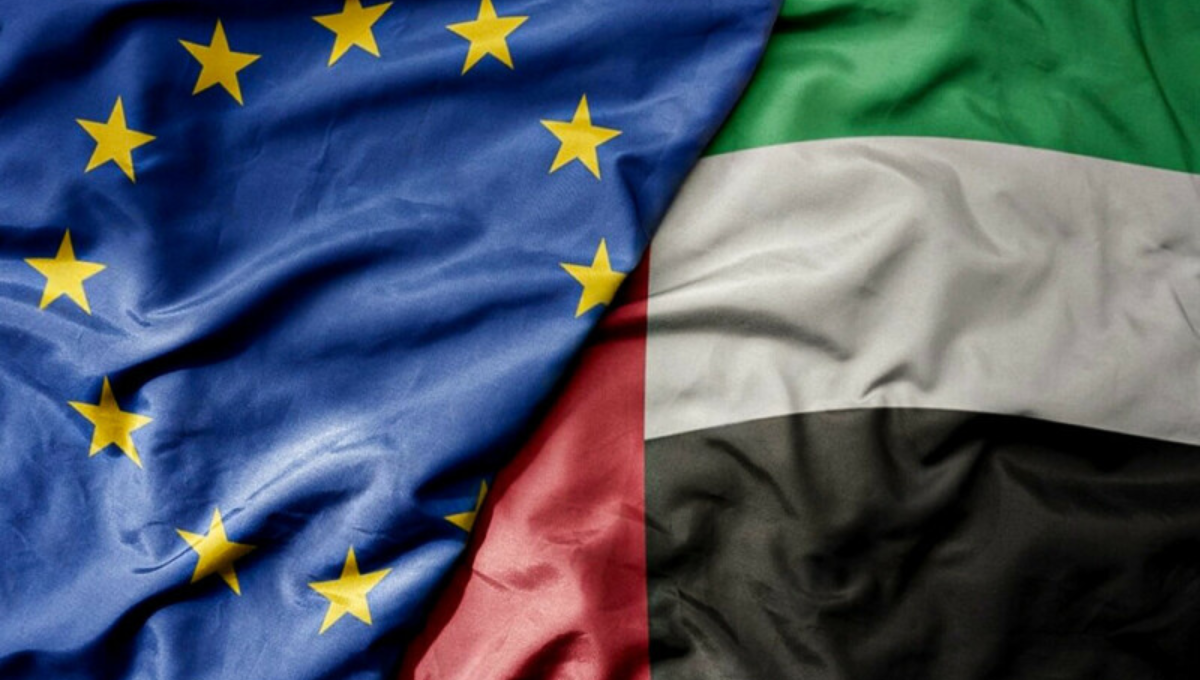Recent developments have seen the European Union remove the United Arab Emirates (UAE) from its list of high-risk third countries for anti-money laundering (AML), just months after the UAE’s exit from the Financial Action Task Force (FATF) “Grey List”. While the move is presented as a reward for technical compliance, it raises profound security and financial integrity risks for the entire European Economic Area, risking the undermining of decades of hard-fought progress against illicit financial flows.
We urge EU policymakers, law enforcement leaders, and financial regulators to reconsider and IMMEDIATELY re-instate the UAE to high-risk status, for the following critical reasons.
1. Track Record of Systemic Money Laundering Failures
The UAE’s exit from the FATF Grey List is not equivalent to true, sustained AML compliance. The UAE remains an open global gateway for illicit finance. Past investigations have repeatedly revealed the country’s enabling environment for criminal capital:
- Notorious Laundering Haven: The UAE banking and real estate sectors have historically been exploited by international criminal syndicates and sanctioned entities for laundering billions, including proceeds from drug trafficking, tax evasion, and corruption.
- Role in “Dubai Papers” Scandal: Leaked documents revealed Dubai-based companies and professionals facilitating opaque offshore structures for tax evaders, politicians, and suspected criminals.
- Shell Company Abuse: Countless shell entities and “free zones” have enabled money to move with minimal scrutiny, regularly frustrating international investigations.
- Persistent Gold and Luxury Commodity Laundering: Dubai’s gold trade has served as a funnel for African conflict gold and illicit capital, facilitated by lax regulation and weak customs enforcement.
2. Recent Superficial Reforms are Easily Reversible
FATF’s removal of the UAE from the Grey List was based primarily on the adoption of technical reforms, not the robust implementation or long-term results. Past high-risk jurisdictions often relapsed when international pressure faded:
- “Tick Box” Compliance: Multiple jurisdictions have left AML watchlists only to return when enforcement failed (e.g., Pakistan’s repeated removal and re-listing), showing that technical benchmarks do not guarantee real-world change.
- Lack of Proven Law Enforcement Track Record: The UAE’s prosecution and conviction rates for money laundering remain minimal compared to the scale of the crimes documented, indicating reforms are largely on paper.
3. Enabling Russian, Iranian, and Other Sanctioned Finance
The UAE remains a conduit for funds and assets linked to Russian oligarchs, sanctioned Iranian entities, and front companies serving embargoed regimes:
- Russian Sanctions Evasion: The surge in Russian capital and high-end asset acquisitions in Dubai post-2022 Western sanctions is well-documented. UAE has failed to align with EU and G7 sanctions enforcement, allowing the state to act as a backdoor to global financial networks.
- Iranian and North Korean Evasion: Several past and present cases point to UAE-based “transshipment” businesses and shell firms rerouting embargoed goods and finances to sanctioned regimes.
4. Imminent Threat to EU Banks and Markets
By de-listing the UAE, the EU is signaling to banks and investors that business with shady counterparts in Dubai and Abu Dhabi now carries reduced compliance risk. This is not just dangerous but demonstrably false:
- Legal and Reputational Risk: The “clean bill of health” will expose EU banks, insurers, fintechs, and real estate actors to sudden regulatory sanctions or lawsuits when new laundering scandals inevitably explode.
- Weak Customer Due Diligence: Financial institutions may be tempted to reduce scrutiny for UAE transactions, giving an open highway for kleptocrats and criminals to move funds into Europe.
5. Precedent Shows the High Cost of Premature De-Listing
History teaches us that delisting high-risk countries without demonstrated, years-long, culture-deepening change leads to surges in financial crime:
- Case Studies: Previous de-listings of countries such as Pakistan, Ghana, and Malta resulted in regression and a return to watchlists when initial reforms proved cosmetic.
- Regulatory Whiplash: Such moves damage global credibility of FATF and EU AML oversight, emboldening other risky jurisdictions to “game the system.”
Concrete Examples of UAE Enabling Money Laundering (2010–2025)
- Iran Sanctions Busting (2010s): Multiple global investigations highlighted Dubai-based front companies rerouting billions in embargoed Iranian oil sales.
- Danske Bank Money Laundering (2017–2019): UAE accounts were reportedly used to receive laundered funds as part of the €200 billion Estonian scandal.
- Gold Laundering Networks (2020s): Dubai’s gold souks remained epicenters for masked shipments of conflict and smuggled gold, undermining EU AML initiatives.
- Organized Crime Links: “Super-fixer” structures headquartered in Dubai facilitated drug cartel and corruption funds, with global law enforcement consistently naming the Emirate as a preferred hub for criminals evading justice.
- Lack of Extradition: UAE consistently delayed or denied high-profile extraditions and asset returns to EU member states.
AML Network Demands Immediate Reversal
Based on the evidence above, continued removal of the UAE from the EU’s high-risk list constitutes a grave threat to European and global financial stability, credibility, and security.
We at AML Network urge all veto-holding authorities and relevant committees within the EU:
- Reinstate the UAE to the High-Risk AML List IMMEDIATELY, citing insufficient evidence of lasting, meaningful change.
- Intensify monitoring of UAE-based transactions entering the EU financial system.
- Signal clearly that economic expediency will not trump rule of law and the fight against transnational financial crime.
- Collaborate with investigatory journalists, civic society, and international finance watchers to build a transparent picture of ongoing UAE-related risks.
Removing the UAE from the EU’s high-risk AML list is premature, dangerous, and places the entire single market at grave risk. The 2025 “Grey List” exit is not a clean bill of health. Until the Emirates prove—over years, not months—that systemic, enforceable, and irreversible reforms are in place, European authorities must not give comfort to financial criminals by lowering their guard.
Protect Europe. Re-list UAE. The cost of inaction will be measured not in headlines, but in untold billions laundered—and the enduring stain on the EU’s anti-crime legacy


